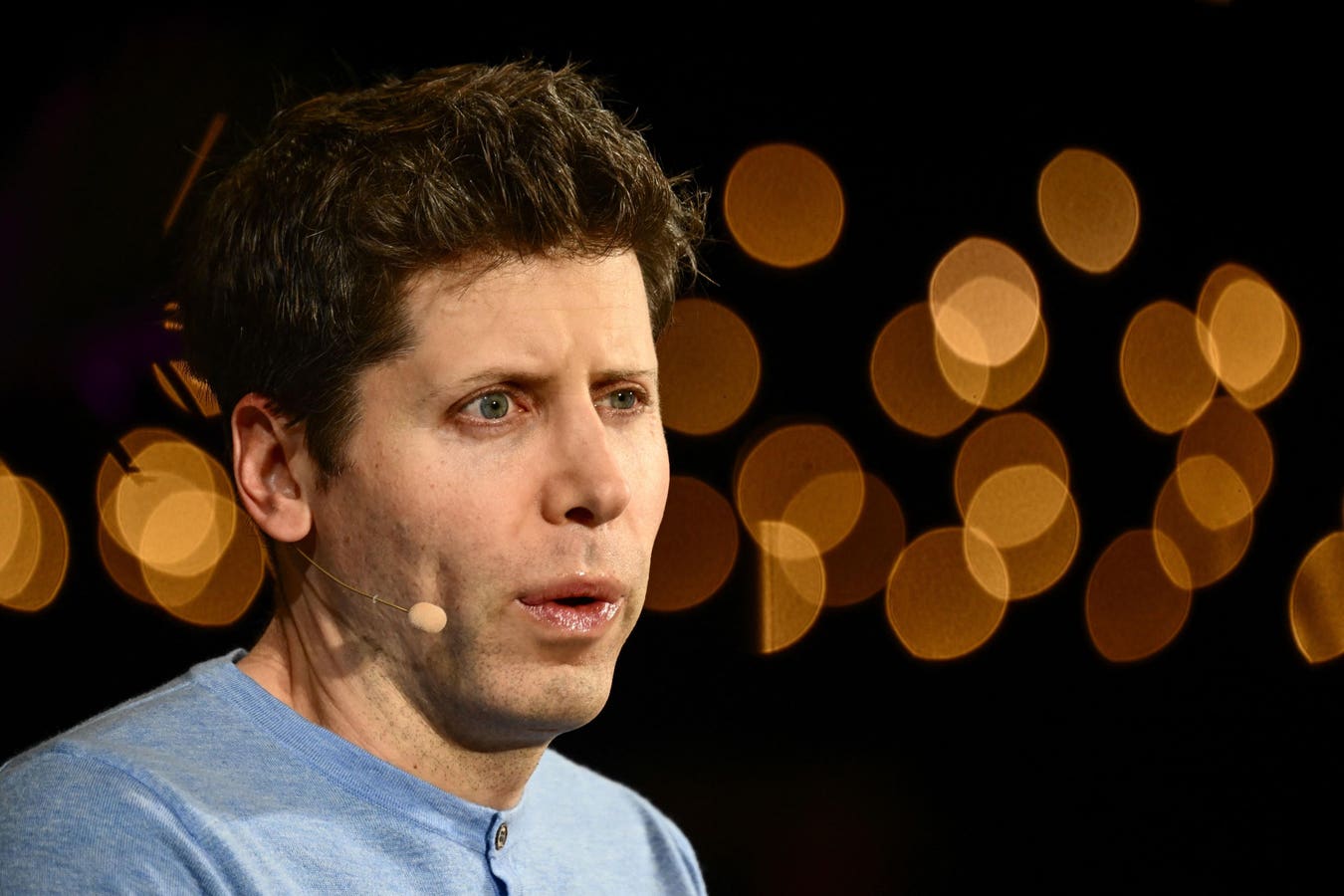TOPSHOT – Sam Altman, CEO of OpenAI, speaks during the Wall Street Journal’s WSJ Tech Live … [+]
People have been talking about a new essay written by none other than Sam Altman, and posted on her website just a few days ago.
Reading it, in my opinion, raises some pretty great insights about where we’re going with AI in these exciting times… so let’s get into it!
Near the beginning, Altman talks about how our generational achievement is not a genetic evolution, but instead, a social change.
Reading this part of the essay, I was struck by the contrast between previous generations and their analog achievements – and this generation and their digital ones.
“Our grandfathers built and achieved great things,” he writes. “They contributed to the building blocks of human progress from which we all benefit. … AI will give people tools to solve difficult problems. The story of progress will continue…”
A little later, he comes up with this broad description of the progress of analog and digital computing that I thought was just brilliant. Here it is in all its glory:
“Here’s a narrow way of looking at human history: after thousands of years of interweaving scientific discovery and technological progress, we’ve figured out how to melt sand, add some dirt, arrange it with astonishing precision on an incredibly large scale. small on computer chips, run power through it, and you end up with systems capable of creating increasingly capable artificial intelligence.”
Molten Sand: It’s an analog pursuit, but it paves the way for something profoundly non-analogous: the eclipse of all physical media in our lives. This is nothing. Far from it.
After that, he suggests we’ll have “superintelligence within a few thousand days” — which is a mind-boggling timeline.
In the middle of the essay, Altman talks about the potential for shared prosperity. I have to admit that I think many readers would have some skepticism. We’re so far away without any real progress on universal basic income – and automation is wiping out jobs and gig economy work at a rapid clip.
We are no longer able to rely on our natural abilities to make us better than machines. Cars are winning. And since it is a free competitive market – there is a real potential for problems.
However, Altman’s description of this prosperity is based on reasonable predictions of what we can do with this technology. We won’t have to do many different types of work. The work will be done for us, just as a washer and dryer makes it unnecessary for us to wash each of our clothes in a pool of sink water.
Then there’s Altman’s description of how we got to this point – “deep learning worked”.
This is brief, but it makes sense. We have discovered this intelligence, hidden in dusty rock, metal and electricity, that has shaken our collective world. We are still scratching the surface of what this power of free movement is capable of. It is not for nothing that the scribes of our time compare it to fire and electricity.
As Altman says, “the road to the age of intelligence is paved with calculation, energy, and human will.”
And, as he suggests, to get this right, people need to think a little.
“We must act wisely but with conviction,” he writes.
It’s an interesting part of the essay where Altman talks about democratizing computing by building infrastructure and giving people enough free and accessible resources.
You can think of this as a reflection of the state of our housing market, where we need to make housing work affordable. Altman implicitly suggests that we should do the same with computing.
If we can do this, the implication is that we will have tremendous prosperity.
Altman suggests that we will be able to do great things, like regulate the climate and create a space colony. Apparently, most of us would be happy with climate regulation, since this existential problem often seems insurmountable.
As for the world of work, where Altman admits we have problems, the hope is that we act to uphold the value of people and ensure that AI lifts all boats. He expresses some optimism:
“Humans have an innate desire to create and be useful to one another,” he writes. “No one is looking back on the past, wishing they were a lamplighter.”
Let’s hope that Altman is right – that we are able to reorganize society so that everyone can benefit from the many benefits of AI. If this can actually happen, we will be on our way to something that looks like Utopia.
